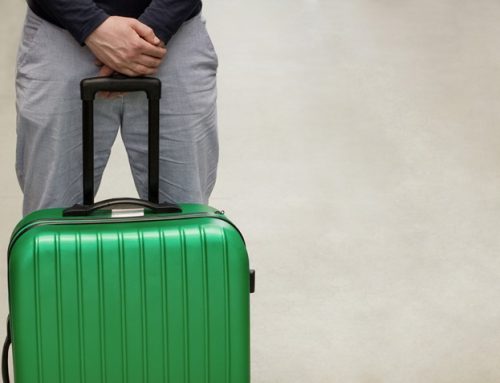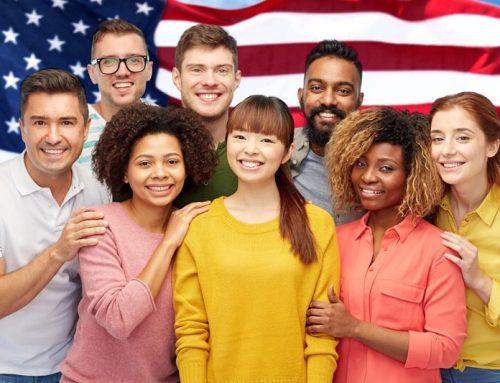How Can A T Visa Help Victims Rebuild Their Lives?
Human trafficking is a widespread crime that traps millions worldwide in forced labor or exploitation. In the United States, the T Visa stands out as a tool for offering relief to survivors. This immigration benefit provides a pathway to safety, stability, and a fresh start, helping victims rebuild their lives while holding traffickers accountable.
For those impacted by human trafficking or seeking to help survivors, understanding available options can be life-changing. This article explores T Visas, who qualifies, and why it’s a vital tool for those pursuing freedom and justice. It also explains how compassionate legal support can help survivors succeed in their applications.

What Does A T Visa Do For Trafficking Victims?
For victims of human trafficking, breaking free and rebuilding life can feel impossible. The T nonimmigrant status or T Visa can bring hope in these situations. The Trafficking Victims Protection Act (TVPA) of 2000 created this pathway to help survivors stay in the U.S. legally. It also equips law enforcement with better tools to prosecute traffickers.
Not everyone who has experienced trafficking meets the eligibility criteria, as the process focuses on specific legal requirements. These ensure that immigration benefits reach those who need it most while supporting efforts to combat trafficking. You may qualify for a T Visa if you:
- Be a Victim Of Severe Trafficking: This includes survivors of sex trafficking or forced labor who can demonstrate their exploitation.
- Be Present In The U.S. Due To Trafficking: Applicants must be in the United States, American Samoa, the Northern Mariana Islands, or at a U.S. port of entry because of their trafficking experience.
- Cooperate With Law Enforcement: They must comply with reasonable requests from law enforcement to assist in investigating or prosecuting trafficking crimes. Law enforcement may waive this requirement for individuals under 18 during the trafficking or those unable to cooperate due to trauma.
- Face Extreme Hardship If Removed: Removal from the U.S. must result in severe harm, whether physical, emotional, or economic.
- Meet Admissibility Standards: Applicants must be admissible to the U.S., though waivers are available for specific grounds of inadmissibility.
Understanding these eligibility requirements is a critical step for survivors and their advocates. With the help of a lawyer, applicants build a strong case that highlights their hardships and withstands scrutiny. By meeting these criteria, they can be safe and secure a new beginning.
What Advantages Does This Visa Provide?
The T Visa can be a fresh start for survivors of human trafficking. This provides necessary protections and resources, helping individuals regain stability, safety, and independence. For many, it’s the first step toward a secure future where they can rebuild their lives without fear.
Work Authorization
One of the most empowering aspects of the T Visa is the ability to work legally in the United States. With this authorization, survivors can seek employment, establish financial independence, and begin supporting themselves and their families.
Survivors can access job opportunities, build savings, and create a sense of control over their lives. This financial stability helps individuals regain confidence and reduces the risk of being re-trafficked or falling into unsafe situations.
Access To Public Benefits
T Visa holders can qualify for services provided by federal and state programs. These include healthcare, housing assistance, counseling, and education opportunities. Access to these resources is vital in addressing the physical and emotional toll of trafficking.
Survivors often face significant health challenges due to their experiences. Medical care and mental health services ensure they can recover in a supportive environment. Similarly, housing assistance offers a safe and stable place to live, free from the dangers they once endured.
Path To Permanent Residency
The T Visa offers a clear pathway to permanent residency. Survivors can apply for a Green Card after holding the Visa for three years—or earlier under certain circumstances. This opportunity enables survivors to build a stable future with greater certainty and safety.
This transition to lawful permanent residence provides long-term stability and security. It allows survivors to stay in the U.S. without the constant worry of deportation and opens the door to eventual citizenship if they choose to pursue it.
Family Reunification
Trafficking often separates victims from their loved ones, adding to the trauma they endure and isolating them further. The T Visa allows eligible family members to apply for derivative Visas, creating opportunities for reunification and rebuilding connections. This provision ensures survivors don’t have to face their recovery journey alone.
Family reunification can provide healing and emotional support for survivors, offering strength during a challenging time. Rebuilding family bonds helps restore a sense of normalcy and connection, which is critical for long-term recovery and overall well-being. A reunited family provides a foundation for survivors to move forward with confidence and hope.
Safety & Protection
Above all, the T Visa offers safety. Survivors can remain in the U.S. under legal protection, shielding them from deportation and the threat of returning to unsafe environments. This pathway creates a stable foundation for recovery by keeping survivors away from dangerous situations.
This sense of security is invaluable. It allows survivors to focus on rebuilding their lives without fear of retaliation from traffickers or the risk of being re-trafficked in their home countries. With legal protections in place, they can start to heal and move forward.
The opportunities provided by this Visa offer survivors a chance to reclaim their lives and build a secure future. However, accessing these benefits requires completing a detailed application process. Understanding the steps involved is key to obtaining this vital relief.
What Steps Lead To Legal Relief For Survivors?
Applying for a T Visa involves several critical steps designed to provide trafficking survivors with the legal protections they deserve. Survivors typically begin the process after cooperating with law enforcement. After this, survivors can formally apply through the U.S. Citizenship and Immigration Services (USCIS).
- Establish Eligibility: Understand the requirements for the visa, including being a trafficking survivor, demonstrating physical presence in the U.S. due to trafficking, and showing compliance with law enforcement.
- Gather Supporting Evidence: Collect documents such as personal statements, law enforcement endorsements (if applicable), medical or counseling records, and any proof of trafficking.
- Complete Form I-914: Accurately fill out Form I-914, Application for T Nonimmigrant Status, which is the primary application for this immigration benefit.
- Request Waivers If Needed: If you are inadmissible for specific reasons, apply for a waiver using Form I-192 to address grounds of inadmissibility and strengthen your application.
- Submit The Application: Send the completed application package, including all required documents and forms, to the designated USCIS filing location. Double-check for accuracy before submission.
- Respond To Requests For Evidence (RFEs): If USCIS requests additional evidence, provide the requested information promptly to ensure your case continues without unnecessary delays.
Once you apply, you wait for a decision. USCIS reviews each case individually, considering the unique circumstances and evidence you provide. This case-by-case approach ensures fairness and thorough assessment. Staying informed and prepared throughout the process can significantly impact the outcome.
While the T Visa provides a vital lifeline for survivors, navigating the application process involves detailed requirements and procedures. From gathering evidence to addressing legal and emotional hurdles, applicants may face barriers that make the journey challenging.
What Can Make The Process Challenging?
Applying for this Visa offers survivors relief, but the journey has challenges. Survivors often encounter hurdles that complicate their applications and add emotional strain to a problematic situation. Recognizing these obstacles is the first step toward overcoming them and securing the help needed.
Evidence Collection
Many survivors struggle to provide traditional documentation, as traffickers often withhold vital records. This doesn’t mean the application is doomed—alternative forms of evidence, such as personal statements, witness testimonies, and advocacy group letters, can strengthen a case.
Trauma & Cooperation
Revisiting traumatic experiences for legal purposes can be challenging, but survivors are not alone. Many organizations and legal advocates offer trauma-informed support to help survivors share their stories at their own pace. For those unable to cooperate with law enforcement due to trauma, exceptions exist, ensuring they still have a path to relief.
Legal & Bureaucratic Hurdles
The legal system can seem confusing, but survivors don’t have to navigate it alone. Immigration lawyers can help applicants complete their applications accurately. They provide resources to simplify the process, allowing survivors to focus on their future instead of the paperwork.
These challenges highlight the importance of finding compassionate assistance. With skilled legal support, survivors can overcome obstacles and confidently work toward obtaining the protection they deserve.
Can Lincoln-Goldfinch Law Help You Find Stability?
 Finding stability after surviving human trafficking is a significant step, and you shouldn’t have to face it alone. Applying for immigration relief adds to the challenges of rebuilding your life. We’re here to help lighten the load and guide you through the process with care and understanding.
Finding stability after surviving human trafficking is a significant step, and you shouldn’t have to face it alone. Applying for immigration relief adds to the challenges of rebuilding your life. We’re here to help lighten the load and guide you through the process with care and understanding.
At Lincoln-Goldfinch Law – Abogados de Inmigración, we work closely with survivors to help them access the protection they need. We listen to your story with compassion and respect, ensuring that you feel heard and supported. Our team helps you gather evidence, prepare forms, and communicate with agencies so that you can focus on healing.
We treat every case with care and attention because no two situations are alike. We help you understand your options and build a substantial application. If you face obstacles like missing documentation or questions from immigration officials, we step in to help you address them and confidently move forward.
Most importantly, we build trust and create a sense of partnership. When you work with Lincoln-Goldfinch Law, you gain a team committed to helping you find the stability and peace of mind you. Let’s work together to help you move forward and reclaim your future.
Summary
The T Visa provides a vital pathway for survivors of human trafficking to find safety and stability. By offering work authorization, access to benefits, and a path to permanent residency, this Visa empowers individuals to rebuild their lives and find protection.
While challenges exist, understanding the process and available resources can make a significant difference. Securing legal relief requires careful preparation and support. Survivors can overcome obstacles and achieve a new beginning with the proper guidance. For those seeking compassionate assistance, Lincoln-Goldfinch Law stands ready to help.
Share this story!
Contact a U.S. Immigration Attorney Today!
Categories
How To Find Us
What Our Clients Say
“This Lawfirm is great, very professional and helpful. I love that they are always in communication and always available for when you have questions . 100% recommended by me and my family. Thank you Lincoln-Goldfinch Law – Abogados de Inmigración”





